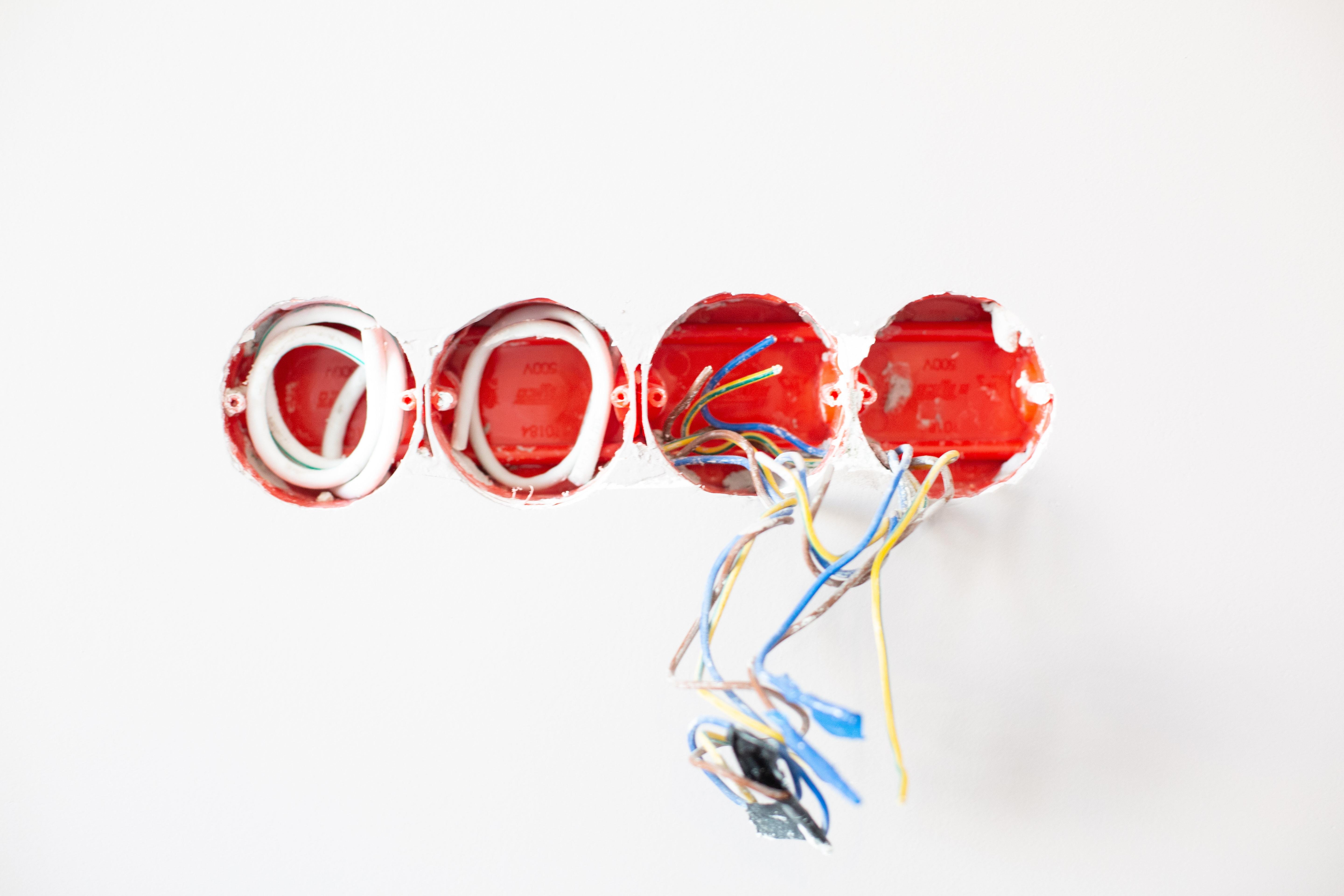Common Electrical Problems and How to Avoid Them
Published 22th of August, 2022

https://www.pexels.com/photo/holes-on-white-wall-with-electrical-wires-3615735/
We take electricity for granted, both the convenience it brings to our lives and the dangers it can pose if we’re not being careful. Some common electrical hazards are easy to avoid or repair, and some require a little more professional attention.
Improperly Used Power Strips, Outlets, and Extension Cords
This is one of the easiest ways to avoid electrical hazards in your home—use cords, outlets, and power strips properly.
Overloaded power strips or outlets can lead to electrical fires. Plugging adaptors into power strips to increase the number of devices using it or daisy-chaining two or more power strips together is a common way people overload their power strips, don’t do it.
Similarly, stringing together multiple extension cords is dangerous. And many people don’t know that extension cords can expire, so make sure you’re not using cords that are too old to function well or safely any longer.
Outlets and Water
Everyone knows not to bring electrical devices in the bath, and not to plug anything in when you are wet.
Not everyone knows that there are special outlets, called GFCI outlets, designed specifically to be safer around water sources such as sinks, showers, and washing machines, and in places likely to be exposed to wet conditions such as crawlspaces, basements, and garages. Make sure your home has these outlets in those places.
Even with GFCI outlets, it’s also a good idea to unplug electrical devices near any water source until you’re actively using that device. Even if you’re in a hurry getting ready to go, don’t leave your hair dryer plugged in by the sink. If you want to leave your coffee maker plugged in overnight so it can start automatically every morning, make sure you use an outlet in your kitchen far from your sink or dishwasher.
Check the plugs near water in your own home with these examples in mind. What else do you find?
If you forget to take this step and leave a device plugged in near water, and if that plug does then get wet, it is important to remember not to unplug it right away. Go to your breaker box and turn power off to that area of your home entirely before you do anything else. After that it will be safe to unplug the appliance.
At that point the next step should be to contact a repair person to check the outlet and make sure it is safe to turn power back on to that part of your home.
Outlets and Children
An easy way to prevent an electrical accident in your home is to prevent children (your own or a guest’s) from accessing electricity.
Baby-proof plugs should be put in unused outlets, but there are also covers that can prevent children from unplugging outlets that are in use, and childproof power strips.
There are also simple DIY ways to increase electrical safety even in the presence of children. Extra-long cords can be bundled neatly with twist-ties or electrical tape, for example, and furniture can be positioned to block access to outlets entirely.
Lightbulb Wattage
Check the wattage on the package of lightbulbs before you buy them. Make sure it’s appropriate for the use you plan for those lightbulbs. Using the wrong wattage lightbulbs won’t just look wrong and waste electricity. It can overload the wiring inside the light fixture or lamp, and that, again, raises the risk of electrical fires.
Replace Malfunctioning Appliances
Is the cord on your blender frayed? Does your microwave smell like something burning? Are any of your electrical devices emitting too much heat or any smoke? Are they showing other [tricityappliance.com/blog/2021/august/6-common-signs-that-your-appliances-need-repair/ signs] of malfunction?
If your answer was yes to any of those questions, then for your safety and the safety of the people living in your home or building, it is time to repair those items, replace them, or to find a way to live without them.
Faulty Wiring
There are a couple of obvious clues that your wiring may be faulty. You probably don’t need to be told to call an electrician if your outlets are sparking, for example.
But some signs that you need electrical work done are not so obvious. Do your outlets feel warm? Do your lights occasionally flicker and dim with no cause that you can find? Do your breakers trip too often? If this is the case, it’s time to call an expert.
You should also have your wiring professionally checked once a year if it is over thirty years old, whether you see any signs of bad wiring or not.
Electrical Safety is Important, But Not Difficult
Keeping on top of the electrical safety in your home is absolutely important. Fortunately, if you follow a few simple precautions and know when to seek professional services, it doesn’t have to be a cause of undue worry.